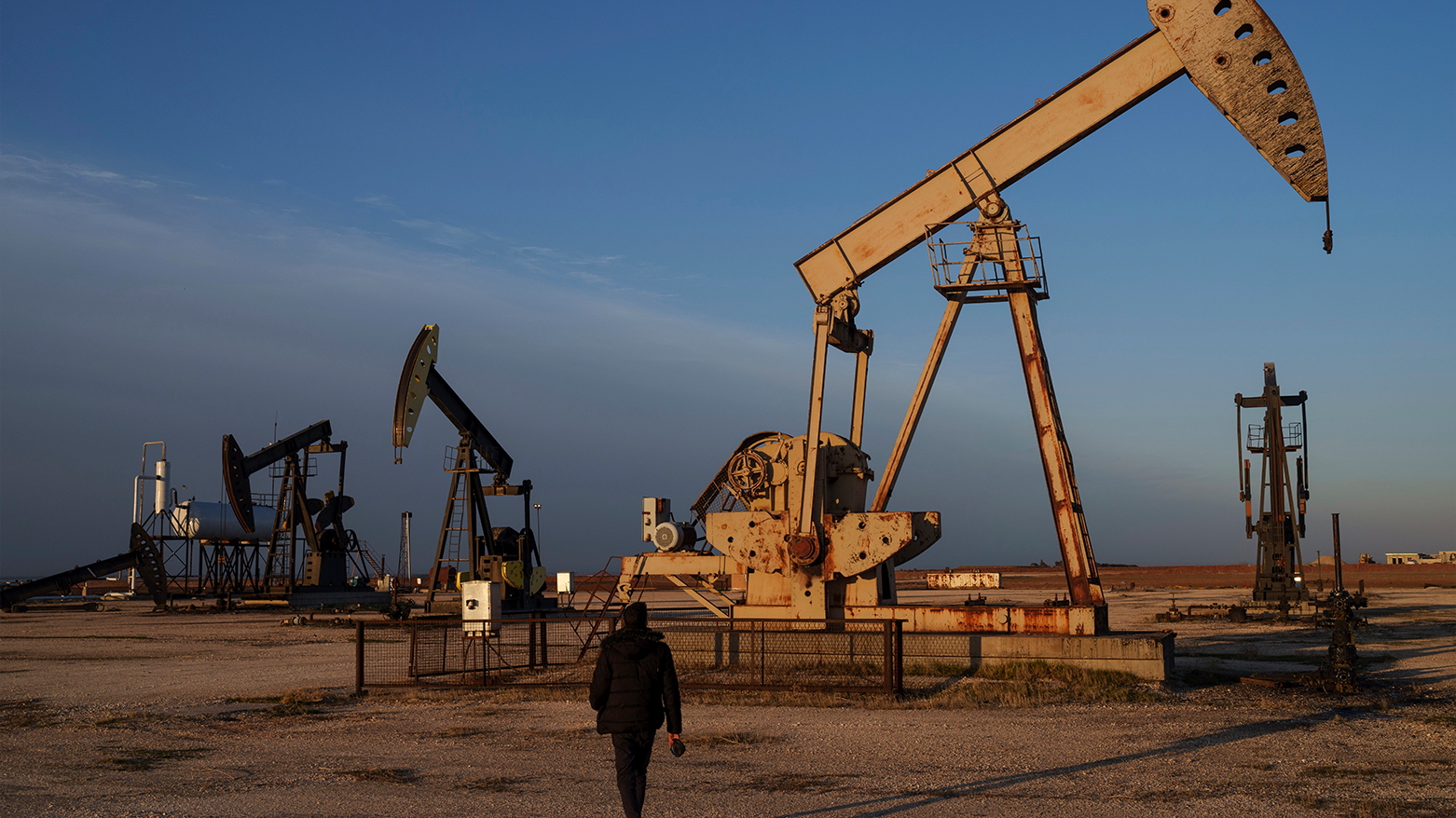Syria Announces Major Oil Export in Bid to Revitalize Economy Amid Lingering Sectarian Strife
Syria exports 600,000 barrels of oil, signaling economic revival efforts alongside diplomatic talks. However, recent sectarian massacres and internal strife cast a dark shadow over the government's ability to ensure stability and achieve long-term economic recovery.

ERBIL (Kurdistan24) – In a significant move aimed at revitalizing its shattered economy and re-engaging with global markets, the Syrian government announced the export of 600,000 barrels of heavy oil from its Mediterranean coast, according to the state-run Syrian Arab News Agency (SANA).
The development marks a tangible step in Damascus's efforts to leverage its natural resources as it navigates a complex post-war landscape, though this push for economic normalization is shadowed by severe internal instability and violent sectarian conflict.
The Syrian Oil Transport Company confirmed on Monday that the shipment was loaded onto the Nissos Christiana tanker at the Tartous oil terminal for the international company “Bserv Energy,” SANA reported.
The state agency added that this initial shipment “will be followed by subsequent exports in the coming period” and is part of a broader strategy to “support the national economy, revitalizing the oil sector, and expanding cooperation with international companies.”
According to the report, the move aligns with Syrian government directives and plans by the Ministry of Energy to “strengthen Syria’s presence in foreign oil markets.”
This oil export is the latest and most concrete development in a series of ambitious initiatives by Syria's new leadership to rebuild the country's devastated energy infrastructure, a process accelerated by the lifting of U.S. sanctions in June 2025.
As previously reported by Kurdistan24, these efforts include high-level talks between Syrian Energy Minister Mohammed Bashir and his Iraqi counterparts to restore the strategic Kirkuk–Baniyas pipeline, which could transport crude from Iraq’s oilfields directly to Syrian refineries and ports.
Damascus has also embarked on a major diplomatic and commercial effort to alleviate a crippling electricity crisis that has left many citizens with as little as one to four hours of power per day. In August, Turkey began delivering natural gas from Azerbaijan to Syria, a project backed by Qatar, with the goal of reviving power plants in Aleppo and Homs and providing up to ten hours of daily electricity.
These economic maneuvers are occurring in parallel with a flurry of high-stakes diplomatic activity aimed at stabilizing Syria and securing its place in a realigned Middle East.
As reported by Kurdistan24, U.S.-mediated talks between Syrian Foreign Minister Assad al-Shaibani and Israeli delegations have taken place in Paris and Baku, focusing on de-escalation measures and a potential revival of the 1974 disengagement accord.
Separately, Jordan has hosted meetings between al-Shaibani and U.S. special envoy for Syria Thomas Barrack to discuss post-war reconstruction on foundations that, according to a Jordanian foreign ministry statement, “guarantee its security, stability, and sovereignty.”
This diplomatic re-engagement follows President Donald Trump's executive order ending most U.S. sanctions, a move the White House said was designed to “promote and support the country's path to stability and peace.”
However, this concerted push for economic and diplomatic normalization is unfolding against a backdrop of profound internal fragility and deadly violence that has called into question the new government's ability to unify the country.
While the authorities who ousted former president Bashar al-Assad in December have pledged to protect all of Syria’s ethnic and religious groups, a series of violent events has severely tested that promise. In July, brutal sectarian clashes erupted in the southern Druze-majority province of Sweida between local Druze fighters and Sunni Bedouin tribes, drawing in Syrian government forces and the Israeli military and leaving more than 2000 people dead, according to the Syrian Observatory for Human Rights.
This violence followed an even deadlier incident in March, when, as reported by Kurdistan24, more than 1,400 mostly Alawite civilians were killed in clashes along the coast, raising deep concerns among Syria’s communities about their security in the post-Assad era. These recent and recurrent clashes, notably the massacres of Alawites and the Druze, combined with continuous tensions with the Kurds in the country’s northeast, have tarnished the reputation of the newly founded government in Damascus.
The incidents have raised serious doubts, both domestically and internationally, over the leadership's capacity to curb sectarian strife and deliver on its pledges of inclusion and protection for all Syrians. It remains to be seen how, against such a volatile background of internal conflict and mistrust, Syria’s ambitious plans for its economy and energy sector can successfully move forward and attract the sustained international investment needed for a true national recovery.
